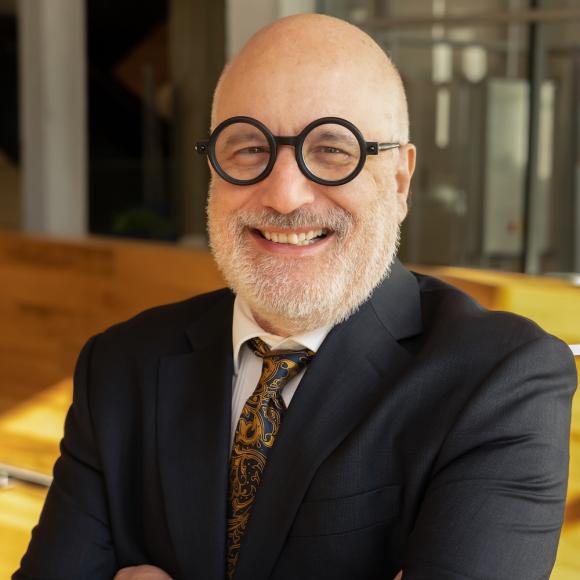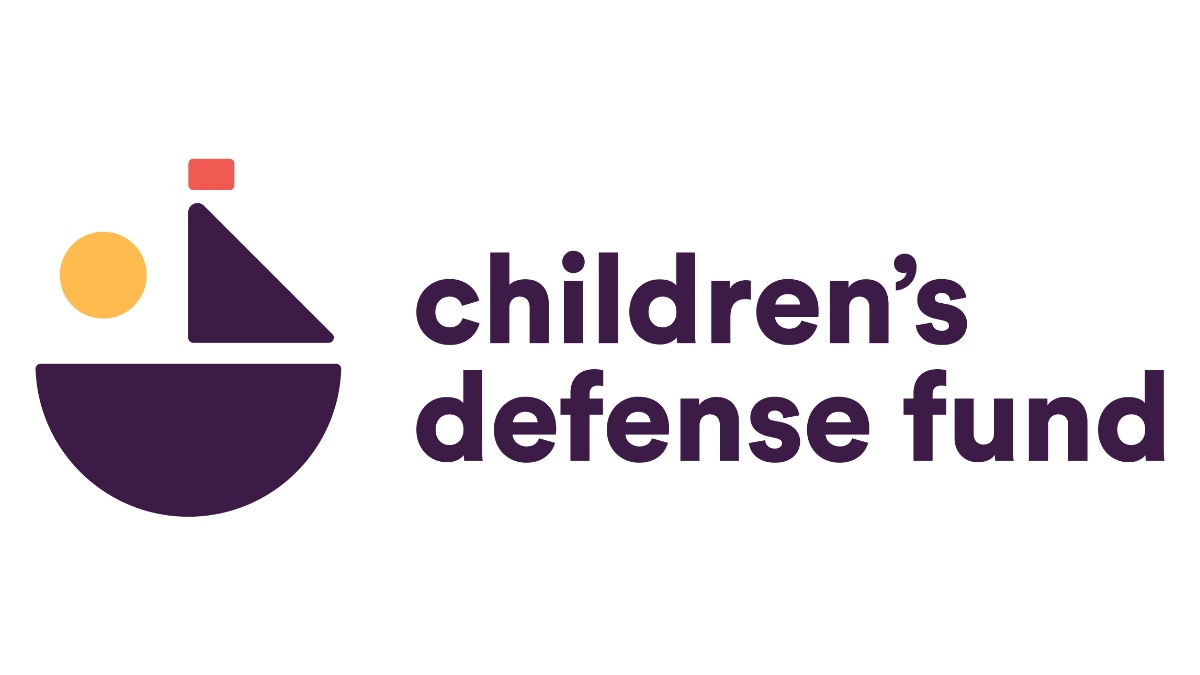Q&A: Professor Steven Durlauf on DEI Policies, Racial Injustices, and the Trump Administration | Harris School of Public Policy | The University of Chicago

Steven Durlauf is the Frank P. Hixon Distinguished Service Professor and the Director of the Stone Center for Research on Wealth Inequality and Mobility at the University of Chicago Harris School of Public Policy. A prominent economist, his analysis and thought leadership have recently been featured in USA Today, the Chicago Tribune, and papers across the United States looking at tariff and trade uncertainty at the federal level.
For this Q&A, Professor Durlauf, who studies poverty, inequality, and economic growth, sat down with us to talk about threats to higher education, the state of freedom of expression on campus, the status of DEI initiatives nationwide, the merits of the policies aimed at addressing historical injustices in the United States, and a range of persistent issues relating to inequality and injustice.
The Trump administration has launched a wholesale attack on what it calls Diversity, Equity, and Inclusion policies of educational institutions. Criticisms of DEI policies predate recent events. What are the dimensions of these criticisms? A first dimension involves the view that DEI policies, in general, produce an atmosphere of intellectual intolerance on campus, in the sense that these policies are predicated on and articulate a contestable set of positions about inequality and justice, and thereby stigmatize those who disagree. The most obvious example of this is cases where schools have adopted speech codes or individuals have been publicly criticized or worse for expressing views that violate what is claimed to be DEI orthodoxy. This criticism goes beyond speech codes, which I perceive as being in decline, to the social interactions that occur on campus. A second dimension involves claims about the politicization of curricula and scholarship, which point to faculty who regard activism as central to a university’s mission and therefore prioritize the pursuit of social justice over the pursuit of knowledge, thereby skewing what is taught. Some argue that faculty hiring is biased against conservatives. A third dimension involves DEI training programs, such as mandated anti-bias training and the like, which are accused of moving beyond providing guidance on how to avoid biased conduct to advocating for particular ideological positions.
My values, experiences and observations lead me to sympathize, to some extent, with the critiques I have described. Let me start with the values that motivate this view. I place overwhelming importance on knowledge creation as integral to the university mission. This requires the ability to challenge existing beliefs, spaces for tough-minded argument and disagreement. Of course, teaching is the second critical mission of a university. Here I believe the environment that produces knowledge is also best in terms of pedagogy. In contrast, I think self-defined faculty activism acts to the detriment of both scholarship and teaching. I take the fact-value dichotomy seriously: values appropriately shape choices and questions, but they do not appropriately shape the truth value assigned to factual claims, to reduce a complex topic to its essence. What I say should be understood in this spirit.
As for the state of universities, I would make several observations as to the validity of the strands of critiques I have described. First, there is certainly no shortage of evidence of cases of the stigmatization of some views on college campuses, which does chill speech and therefore informed discussion. Much of this is decentralized. For example, when the distinguished statistician Tyler VanderWeele came under criticism for signing an amicus brief for the Supreme Court against same sex marriage, he was subjected to graduate student demands that he be barred from teaching. When Salman Rushdie cancels a commencement address at Claremont-McKenna due to student opposition to his criticisms of the failure of Gaza War demonstrators to dissociate themselves from Hamas, that is deeply unhealthy. And when Charles Murray is accosted at Middlebury by protestors, that is outrageous. Some of this reaction is personal. When I was growing up, I was under instructions from my parents to hide the fact we were atheists. I was forced to hear teachers tell classes that if one did not believe in God, one could not be moral. While I rebelled and revealed my nonbelief in college, there were some who treated me as a moral leper. I resent this treatment to this day and so will be damned if I do the same to those who dissent from prevailing views.
Second, there is certainly politicization of some teaching and academic programs, although I think this occurs in isolated departments and schools. I reject banal arguments that all teaching and research are inherently political, this is bad philosophy and history of science and misunderstands the nature of knowledge and scientific progress. Is there evidence of general bias in hiring? Absolutely not. Observations that most professors are liberal/left, donate to Democrats versus Republicans, etc. tells us nothing about bias. I argued this formally in a paper with Ethan Cohen-Cole many years ago; see also a terrific book by sociologist Neil Gross. The main parts are first, most faculty do not evidence strong political views period, so the idea they are biased in hiring makes little sense and second, the most plausible explanation of the liberal/left orientation of faculty says something about the personality types that select into the life of the mind. By analogy, one could not argue that a predominance of conservatives among business CEOs is a sign of biased leadership choices. To be blunt, it is easy to see that claims of systemic ideological bias in hiring are made in bad faith-those making these claims do not attribute all Black/white educational differences or wage differences to discrimination. The point is that gaps between groups do not identify the reasons they exist.
Third, I am confident that many, possibly a majority of faculty find some of the DEI programming on campuses to be political and unhelpful. Whether one is talking about teaching or training programs, I think it is obviously inappropriate to teach contestable and contested claims about the nature of injustices as if they were facts. I would say this about the UChicago training. I note there is scholarly work by Frank Dobbin and Alexandra Kalev which shows how DEI programming can be counterproductive.
However, I wish to be very clear on two points. First, the problems I see as present on campuses are consistent with my judgment that campuses are, overall, locations of much vibrant intellectual exchange and growth. Claims about the effects of DEI on the intellectual life of campuses are grossly exaggerated. Further, there are many niches on campuses. For example, the fact that one unit is dominated by critical race theory, to take an example of anti-DEI scorn even though there is important intellectual content to the perspective, has no bearing on other units. Second, none of these problems justify efforts by state and local governments to try to regulate schools, let alone impose their own ideological visions. The appropriate actors to address DEI problems are the institutions that implement them. To summarize, problems with DEI policies do not mean that they should not exist; reform is justified, elimination is not.
Do DEI efforts contain flaws? As I have said, I think they do. However, the ways that the Trump administration and various state governments have acted to roll back DEI policies is less an attempt to address those problems on campus, and more of an attempt to do something much broader and more sinister. The alleged anti-DEI policies followed by the administration are attacking much more than DEI policies per se, they are an attack on a much broader set of policies designed to address deeply persistent inequalities whose origins are morally abominable parts of our history.
The Trump attacks on DEI, echoed in Florida and other states, cannot reasonably be called good faith efforts to address ideological excesses on college campuses. They constitute a root and branch destruction of policies that attempt to address racial and gender inequalities as well as an effort to re-articulate how Americans should think about themselves and their history.
Let me give an example of a very consequential policy change that really has nothing to do with DEI. One of the most significant actions taken was the rescission of Executive Order 11246 issued in 1965 that mandated non-discrimination and affirmative action on the part of federal contractors above a certain size. This order had been in place for nearly 60 years and was a foundational element of the civil rights movement—and it is now gone.
What the order stipulated was that organizations who received funds from the government need to take steps to make sure that, one, they do not discriminate, and two, there is some similarity between their workforces and the populations of the places they serve. This is not about imposing quotas. It just means taking reasonable actions—such as expanding recruitment efforts and adopting fairer evaluation practices—to promote inclusivity. All of that has now been dismantled. And this is very problematic.
Ending affirmative action policies such as those embodied Executive Order 11246 matters because such policies help address racial inequality in unexpected ways as well as the obvious ones. Conrad Miller conducted a study showing that firms subjected to temporary affirmative action orders because they were federal contractors regulated by the EEOC continued to hire more African Americans even after those requirements were lifted. So now why would that be true? I think a reasonable interpretation is because the firms learned that African Americans are excellent employees too.
I offer this as an example because, when you combine the Supreme Court decision against affirmative action with the wave of threatening letters sent to universities about alleged discrimination in hiring and admissions practices, you see a broader pattern. These efforts target concrete initiatives—such as outreach and scholarship programs for African Americans and other people of color—that are aimed at increasing opportunity. They collectively take a stance on the sources of contemporary racial inequalities in the United States that denies the role of historical and persistent injustices, as well the notion that there are contemporary variants of discrimination that matter.
Here is a particularly troubling example because of what it means. West Point was forced to disband its National Society of Black Engineers and Society of Women Engineers Club. These organizations do not harm white students. A ban denies that there are reasons why the promotion of solidarity and camaraderie among group members underrepresented in STEM fields is somehow unnecessary and invidious.
Another example is the recent removal of books from the Naval Academy’s library. Out of a collection of half a million volumes, 381 were removed—almost all of them related to so-called DEI issues. If you examine the books that were pulled, many were scholarly works. Consider The Difference by Scott Page, a respected study on the impact of diversity on decision-making. The book, which uses formal economic and mathematical models to analyze the evidence, is about to be re-released as a classic by Princeton University Press—yet it was deemed unsuitable for the academy’s library. Richard Herrnstein and Charles Murray’s The Bell Curve, which argues for a genetic component to test score differences between races, remains in the library while a book that critiques it was removed. To be clear, The Bell Curve absolutely should be in the library, and I say this as someone who adamantly rejects its arguments on genetics.
These actions are not restricted to colleges. The Trump administration has stated that it will investigate the Chicago Public School’s Black Student Success Plan based on a specious Title VI violation claim. There are persistent Black-white test score gaps across different ages and these play an important role in disparities in educational outcomes. Addressing these gaps is a first order frontier in addressing overall Black/white inequality.
Add together countless actions such as this, and it is clear that what is being done is a very ugly and troubling thing. It is nothing short of an attempt to rewrite the way we think about the United States. These efforts, in effect, say that number one, discrimination no longer exists at any level of American society in 2025, and two, that the consequences of past discrimination have been fully overcome. Social science and historical evidence of course justify no such thing and to do so denies deep collective responsibilities of our society. The American people, as the inheritors of the United States, own its history and the moral responsibility to rectify the consequences of past and current injustices.
Consider the attacks by the administration on Columbia and Harvard regarding DEI initiatives. What do these attacks mean operationally? One effect is the abolition of programs designed to promote diversity in the student body. In practice, that means a refusal to actively recruit students from underrepresented backgrounds. Now think about the talent we lose because of the historical inequalities embedded in American life. Or think about the stark differences between, say, the children of University of Chicago faculty—who grow up knowing exactly what college is and how to navigate it—and children growing up in communities where college attendance requires a huge act of imagination. Information, identity, and opportunity are historically situated. Addressing those gaps is not equivalent to discrimination against white students; it’s an effort to build what I often call "a meritocracy worth the name." Unfortunately, that idea seems to have gotten completely lost in the current conversation. In my opinion, every meritocrat, and I count myself in this category, should actively support a broad range of diversity efforts.
Economists often distinguish between two kinds of discrimination: one based on animus, the other due to stereotypes. Each of these evolves across time. Certainly, one would not reasonably argue that levels of animus toward Blacks by whites are the same in 2025 as 1950, nor would one argue that negative stereotypes have not evolved. Further, I would argue that 21st-century discrimination should be understood differently from that of the 1950s. Then, discrimination was enforced through explicit laws and rules barring Black Americans from jobs and opportunities. Today, discrimination persists at least partly from a lack of exposure and information.
Integration is the enemy of racial inequality. Living and working in diverse settings matters—and has lasting effects. In a highly segregated society, people’s prejudices are rarely challenged. Attacking policies that promote integration is, in effect, attacking the very mechanisms that could lead to the decline of prejudice. That may sound dramatic, but I believe it is true.
Here is one example of how integration matters: the effects of jury composition on deliberations. Research—including controlled experiments with mock trials—demonstrates how composition influences assessment of guilt and innocence. One reason is that African Americans and whites can view the same evidence and testimony differently because of their distinct experiences. The point is not that one perspective is right and the other wrong. There is also evidence that Black and white juries have different views about appropriate punishments for crimes; this is a case where ethical heterogeneity demands respect because that is where we are as a society. A fuller, more just understanding comes from bringing different perspectives into conversation.
This is, in my judgment, the proper way to think about when and why diversity is intrinsically valuable in the pursuit of knowledge and so matters for college campuses. I certainly do not claim diversity improves performance in every domain—no serious argument exists, for instance, that it helps in solving geometry problems. When such claims are made, they undermine more important points. The real value of diversity emerges when the task at hand requires interpreting complex social realities. It is only through interactions and exchanges of knowledge, ideas, and perspectives that we move collectively closer to the truth









